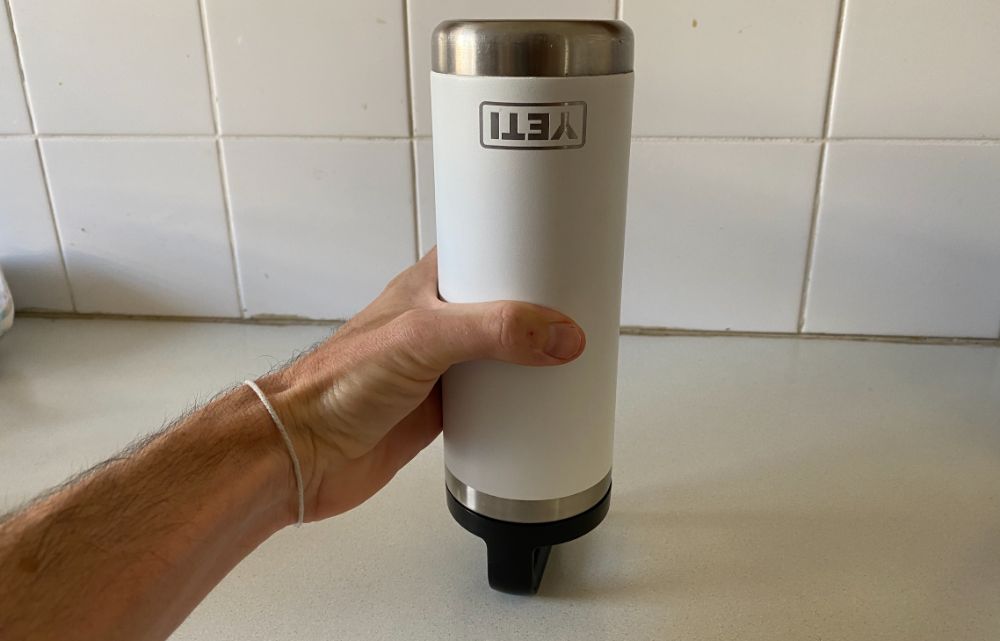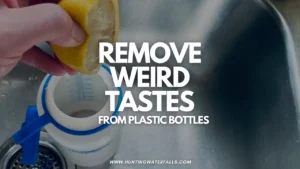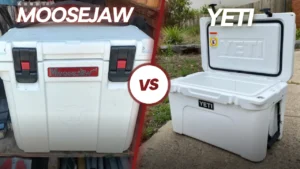I recently broke one of my Yeti Rambler bottles. It was my fault for trying to pull apart the lid to clean it and not knowing what I was doing. But now it's ruined.
It’s pretty scratched up anyway after surviving countless drops, some rough adventures and school days with my kids.
Do I just throw it in the bin or can you recycle Yeti bottles?
Stainless steel Yeti bottles are recyclable, however most curbside programs don't recycle stainless steel. To recycle a Yeti bottle you need to drop it to a metal recycler, donate it to a thrift store or find an alternative way to use the bottle.
Plastic Yeti bottles can be collected through most curbside recycling programs but they are unlikely to be recycled. They are made from Tritan plastic, which is still relatively new. It is classified as plastic #7 (unclassified) and is less widely accepted and recycled when compared to other plastics.
You're better off reusing your Yeti plastic water bottles as the chances are extremely high they'll end up in landfill – even if you put them in your recycling bin.
Why Can't You Recycle Yeti Stainless Steel Bottles Through Curbside Collection?
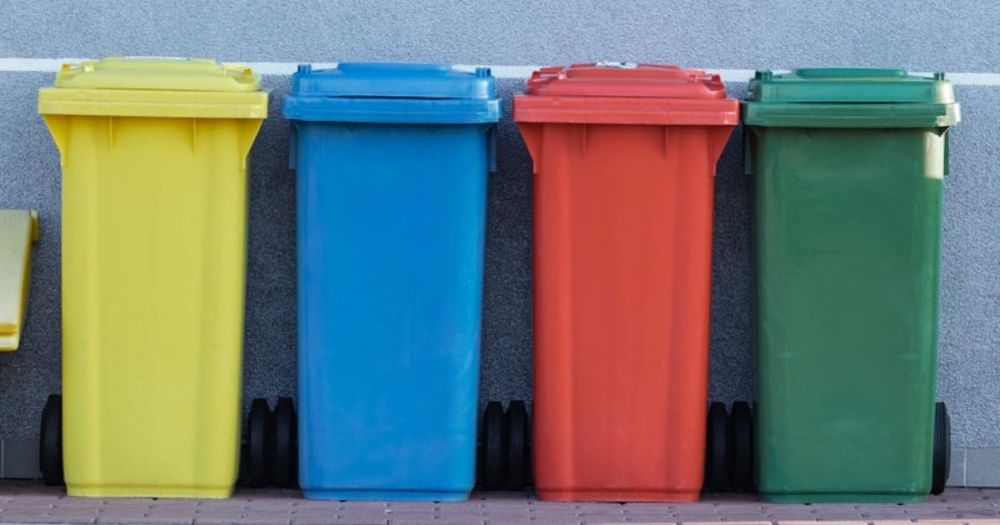
Do you know that today stainless steel is the most recycled material in the world? In North America, we recycle 80 million tons of it per year. That’s more than all the paper, plastic, glass, and aluminum recycling combined.
However, this mostly happens on a commercial scale and not through the local curbside recycling programs.
Many curbside programs are not set up to recycle stainless steel.
A lot of curbside programs work by crushing and baling materials to make them easier to transport and stainless steel is quite difficult to crush compared to other materials. This can mean it can get thrown aside and go into waste.
If you want to recycle your Yeti bottle don't throw them in your general household recycling bin.
How To Recycle Stainless Steel Yeti Bottles?
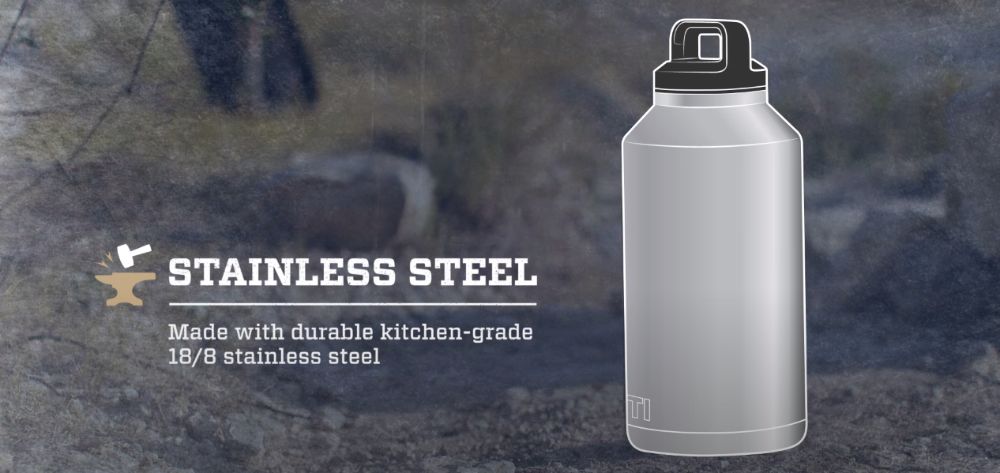
Yeti bottles are made from stainless steel and one of the great things about this is that it’s infinitely recyclable.
Since manufacturing stainless steel is an energy-intensive process that produces significant amounts of carbon emissions, making new stainless steel all the time instead of recycling it would contribute even more to the climate crisis.
Plus, mining for iron ore, the major metal in stainless steel, is environmentally damaging.
Recycling your Yeti bottles can help the planet but it could also make you a little bit of money (though not much)
Take your worn Yeti stainsteel steel water bottles — without the non-recyclable nylon cap — to the closest recycling center that accepts metal. You may receive a few pennies for it, but don’t expect any. You do not have to crush it, but make sure it’s clean and dry.
Stainless steel isn't worth a lot as scrap and Yeti bottles don't contain that much stainless steel. Rockaway Recycling put the price of scrap 304 stainless steel (what Yeti bottles are made from) at around $0.27-$0.28 per pound.
So unless you have a lot of other stainless steel to recycle with it, or you're recycling a lot of bottles, don't expect to get much (or anything) for your bottle. Just be happy knowing that you're doing your part for the climate and your bottle isn't ending up in landfill.
For help with finding your closest metal recycler you can download the iScrap App and find one near you.
Can I Recycle the Yeti Yonder Plastic Water Bottle?
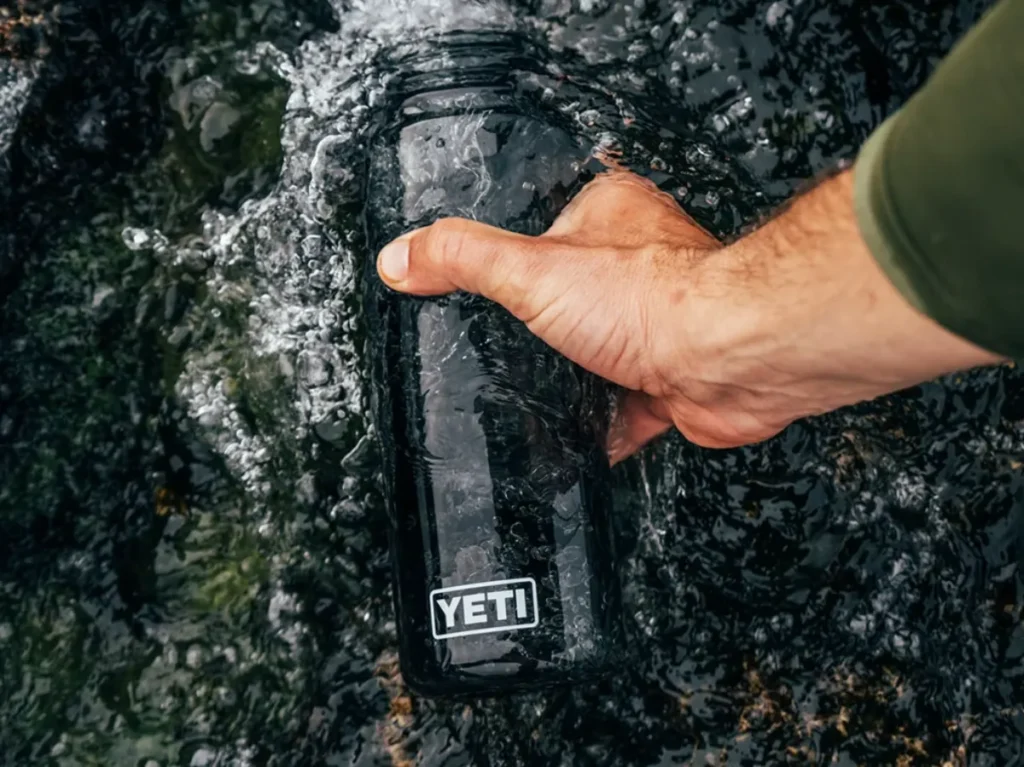
While you can put your Yeti plastic bottles in the curbside collection recycling bin without issue, this doesn't mean they will actually be recycled. In fact, Yeti bottles are extremely unlikely to be recycled.
Yeti plastic bottles are made from Tritan plastic which is a rigid transparent plastic that BPA and BPS free.
Unfortunately, this plastic isn't easily recycled as it's still a fairly new plastic that came into popularity in 2008 after the issues with BPA.
Tritan plastic is labelled as a #7 plastic which means “other” or “unclassified” and these are often much more difficult to recycle.
According to Miller Recycling:
Products stamped with a 7 are often made out of multiple plastic types or out of other types of plastic that can’t easily be recycled. 7 products CAN SOMETIMES be recycled.
Below are a couple of videos outlining the recycling epidemic and the difficulties with recycling plastics:
However, you can repurpose old Yeti Yonders at home.
They make excellent ice packs for coolers, storage containers when you want to keep something dry on a wet excursion, or as mixing bottles for sports drinks. You can also use them to store dry food items in your pantry and there are a variety of other uses.
Check out my article on 10 clever things to do with old Nalgene bottles for some ideas on what you can do with your old Yeti bottles.
My Yeti Stainless Steel Water Bottle Sprung a Leak. Can I Solder and Reuse It?
It is not a good idea to solder a container used for food or drink. Solder may contain lead, a neurotoxin. Lead ingestion causes a host of health problems, so it’s not worth taking the risk.
Instead, recycle that Yeti! Most local recyclers will accept it (even with a tiny hole in it).
Which Is More Sustainable, a Yeti Stainless Steel or Plastic Water Bottle?
The Yeti stainless steel bottle are much more sustainable because they can be infinitely recycled and much more easily recycled.
Not only can it be recycled, it likely will be. That is, if you take it to the correct place to be recycled.
Stainless steel is the most recycled material on the planet.
You may see “can be recycled” on plastic products. But it’s not, really.
In most cases, plastic recycling requires special equipment that is not commonly available because it is so expensive. Making virgin plastic is much cheaper, so that’s what companies buy to make their stuff.
Less than 5% of all plastic is actually recycled. Plastic that is recycled loses its functionality, sometimes after one time.
So, it’s downgraded and used to make low-demand, inexpensive goods — not new Yeti Yonder plastic water bottles which are more expensive than many other brands.
Does the 18/8 Stainless Steel in Yeti Water Bottles Make a Difference in Terms of Recyclability?
No, all grades of stainless steel are equally recyclable.
Yeti stainless steel bottles, made of 18/8 kitchen-grade stainless steel, means there is 18% chromium and 8% nickel in it. These metals protect the bottle from corrosion — at least most of the time.
During recycling, the metals are separated out and recombined later to make new products.

